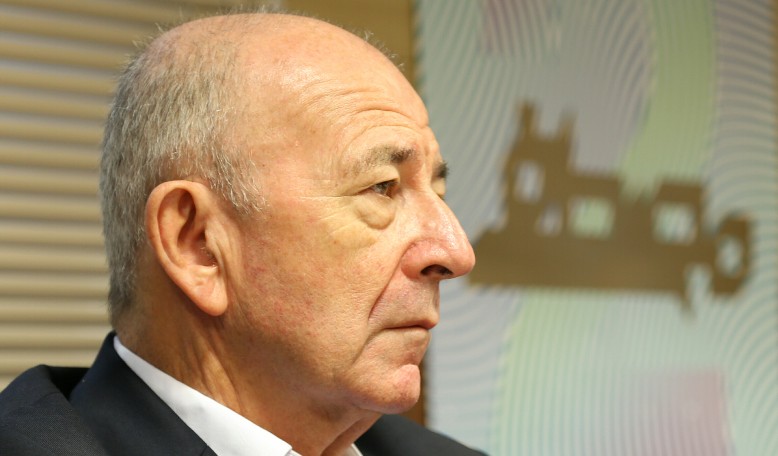Gelenbe draws on mathematics to fight against COVID-19


A laureate of the 2017 Mustafa(Pbuh) Prize is working on a Coronavirus model based on the infectious interactions’ patterns which, when developed, can also be utilized in similar cases.
MSTF Media reports:
Sami Erol Gelenbe, member of Science Academy of Turkey, a professor at the Institute of Theoretical and Applied Informatics (ITAI) of the Polish Academy of Sciences, and a laureate of the 2017 Mustafa Prize, is working on a Coronavirus model which can be “useful in deciding next steps.”
He voiced concern that it is not clear how the societies are going to be managed once the Coronavirus pandemic is over. “So, I think the kind of thing I am doing can be helpful in looking at how we are going to get out of this problem. It is a probability model based on infectious interactions,” he said.
In this project the patterns of interactions among different populations in a city, for example the people who stay at home, those who have to work outside, the hospitalized patients, and the health workers are going to be studied.
“Using mathematics, I’m trying to understand how these interactions create a stable system, and perhaps a system through which we will be able to reduce the health impact of the virus. This can be useful now, at exit time, and on other occasions similar to this,” he added.
Asked if Artificial Intelligence (AI) can effectively help the fight against pandemics like that of Coronavirus, he replied: “AI is a reactive process, not a predictive one. It comes after, not before. It is based on past experience, not on something which has not happened yet.”
As a successful example of utilizing AI in the current pandemic, he touched upon the COVID-19 detection system recently unveiled at Sharif University of Technology and said: “it is a very useful application in medical diagnostics. It helps the doctors and allows many different health facilities share the data provided in the program.”
Gelenbe referred to the coronavirus outbreak as an opportunity in which novice researchers and university students can invest in themselves by expanding their knowledge.
University students and novice researchers can seize the opportunity of quarantine life to go forward in their studies by using online materials and “spending more time reading, understanding, and trying to reproduce what is already done” rather than embarking on novel research projects.
“When I was a student I used to spend a lot of time reading and trying to reproduce what I’ve read,” he added.
Considering the Coronavirus pandemic as a blessing in disguise, for it is increasing the research community’s awareness toward travelling less and holding the meetings and conferences through the internet, Gelenbe stated: “the research community is adapting its work style to work in this context, and perhaps this adaptation will not be just for this case, but for a new way of working with other people.”
Currently running and coordinating a number of research projects across Europe, he continued: “in lockdown everyone is adapting to do collaborative research without travelling too much.”
Referring to the countries successful in diminishing the Coronavirus casualties and flattening COVID-19’s curve, he contended that not only do Germany and South Korea consist of highly disciplined people, but also they have “invested very heavily in hospital facilities, so that they can do a lot of specialized treatments.”
Sami Erol Gelenbe is currently involved in various collaborative research projects one of the most outstanding of which is SERIOT. This is a project on cybersecurity with around 5 million euros grant budget for three years. Some of the industry partners of SERIOT consortium include leading European companies such as Deutsche Telekom, Atos, and Tecnalia.